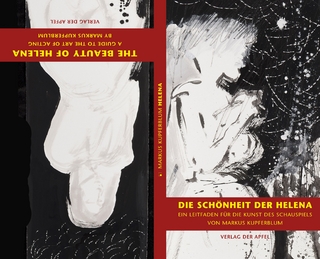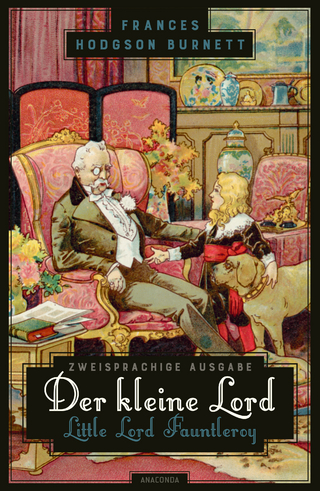
The Right Attitude to Rain
Anchor Books (Verlag)
978-0-307-38667-0 (ISBN)
- Titel ist leider vergriffen;
keine Neuauflage - Artikel merken
ISABEL DALHOUSIE - Book 3
Nothing captures the charm of Edinburgh like the bestselling Isabel Dalhousie series of novels featuring the insatiably curious philosopher and woman detective. Whether investigating a case or a problem of philosophy, the indefatigable Isabel Dalhousie, one of fiction's most richly developed amateur detectives, is always ready to pursue the answers to all of life's questions, large and small.
When Mimi, Isabel's cousin from Dallas, arrives in Edinburgh with her husband, Joe, several confounding situations unfurl. First, Mimi and Joe introduce Isabel to Tom Bruce-a bigwig back home in Texas. The roving eye of Tom's young fiancée leads Isabel to believe that money may be at the root of her love for Tom. But what, Isabel wonders, is at the root of Tom's interest in Isabel herself? Then there are the feelings that Isabel has for Jamie, which are certainly hard to ignore. And she mustn't forget about her niece, Cat, who's busy falling for a man whom Isabel suspects of being an incorrigible mama's boy.
Of course, Jamie counsels Isabel to stay out of it all, but there are irresistible philosophical issues at stake-when to tell the truth and when to keep one's mouth shut, to be precise-and philosophical issues are meat and drink to Isabel Dalhousie, editor of the Review of Applied Ethics . In any case, Isabel is certain of the ethical basis for a little sleuthing now and again- especially when the problems involve matters of the heart.
From the Hardcover edition.
Alexander McCall Smith is the author of, in the Isabel Dalhousie series, The Sunday Philosophy Club and Friends, Lovers, Chocolate . He is also the author of the international phenomenon The No. 1 Ladies' Detective Agency series. He is professor emeritus of medical law at the University of Edinburgh in Scotland and has served on many national and international bodies concerned with bioethics. From the Hardcover edition.
"The literary equivalent of herbal tea and a cozy fire . . . Invite[s] readers into a world of kindness, gentility, and creature comforts. McCall Smith's Scotland [is] well worth future visits." -The New York Times
"Charmingly told . . . Its graceful prose shines, and Isabel's interior monologues-meditations on a variety of moral questions-are bemused, intelligent, and entertaining." -The Seattle Times
"McCall Smith's assessments of fellow humans are piercing and profound. [His] depictions of Edinburgh are vivid and seamless . . . His fans are sure to embrace these moral peregrinations among the plaid."
-San Francisco Chronicle
From the Hardcover edition.
CHAPTER ONE To take an interest in the affairs of others is entirely natural; so natural, in fact, that even a cat, lying cat-napping on top of a wall, will watch with half an eye the people walking by below. But between such curiosity, which is permissible, and nosiness, which is not, there lies a dividing line that some people simply miss-even if it is a line that is painted red and marked by the very clearest of warning signs. Isabel adjusted the position of her chair. She was sitting in the window of the Glass and Thompson café at the top of Dundas Street-where it descended sharply down the hill to Canonmills. From that point in the street, one could see in the distance the hills of Fife beyond: dark-green hills in that light, but at times an attenuated blue, softened by the sea-always changing. Isabel liked this café, where the display windows of the shop it had once been had now been made into sitting areas for customers. Edinburgh was normally too chilly to allow people to sit out while drinking their coffee, except for a few short weeks in the high summer when café life spilled out onto the pavement, tentatively, as if expecting a rebuff from the elements. This was a compromise-to sit in the window, protected by glass, and yet feel part of what was going on outside. She edged her chair forwards in order to see a little more of what was happening on the other side of the road, at a slight angle. Dundas Street was a street of galleries. Some were well established, such as the Scottish Gallery and the Open Eye, others were struggling to make a living on the work of young artists who still believed that great things lay ahead. Most of them would be disappointed, of course, as they discovered that the world did not share their conviction, but they tried nonetheless, and continued to try. One of these smaller galleries was hosting an opening and Isabel could see the crowd milling about within. At the front door stood a small knot of smokers, drawing on cigarettes, bound together in their exclusion. She strained to make out the features of one of them, a tall man wearing a blue jacket, who was talking animatedly to a woman beside him, gesturing to emphasise some private point. He looked vaguely familiar, she decided, but it was difficult to tell from that distance and angle. Suddenly the man in the blue jacket stopped gesturing, reached forward and rested a hand on the woman's shoulder. She moved sideways, as if to shrug him off, but he held on tight. Her hand went up in what seemed to be an attempt to prise off his fingers, but all the time she was smiling-Isabel could see that. Strange, she thought; an argument conducted in the language of smiles. But more intriguing still: an expensive car, one of those discreet cars of uncertain make but with unambiguous presence, had drawn up on the café side of the street, just below the level of Isabel's window. It had stopped and a man and a woman had emerged. They were in a no-parking zone, and Isabel watched as the man pressed the device on his key ring that would lock the doors automatically. You are allowed to drop things off, thought Isabel, but not park. Don't you know that? And then she thought: People who drive cars like that consider themselves above the regulations, the rules that prevent those with humbler cars, and shallower pockets, from parking. And these people, of course, can afford the parking fines; small change for them. She found herself feeling irritated, and her irritation became, after a few moments, animosity. She found herself disliking them, this man and woman standing beside their expensive car, because of their arrogance. She looked down into her coffee cup, and then up again. No, she thought. This is wrong. You should not dislike people you do not know. And she knew nothing about them, other than that they appeared to imagine that their wealth entitl
| Reihe/Serie | Isabel Dalhousie |
|---|---|
| Sprache | englisch |
| Gewicht | 148 g |
| Themenwelt | Literatur ► Krimi / Thriller / Horror |
| Literatur ► Zweisprachige Ausgaben ► Deutsch / Englisch | |
| Schlagworte | Edinburgh; Krimis/Thriller • Englisch; Krimis/Thriller |
| ISBN-10 | 0-307-38667-8 / 0307386678 |
| ISBN-13 | 978-0-307-38667-0 / 9780307386670 |
| Zustand | Neuware |
| Haben Sie eine Frage zum Produkt? |
aus dem Bereich


